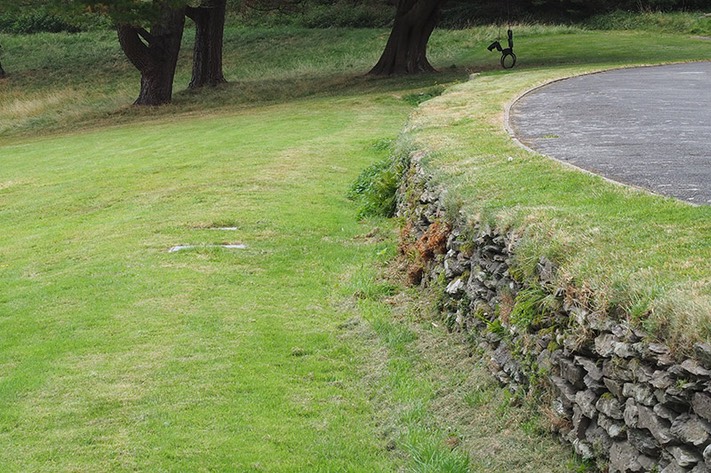A couple of years ago, I shared one of the most simple and yet profound songs I know, one of those songs that instantly transports me into the Throne Room of God, so to speak.
Because the truths expressed in that song, and in the article that I wrote on it, are so important and uplifting, I thought that now was a good time to share it once again. So, without further ado, let’s continue:
Your Name’s Above All Names
There are a few songs that, without fail, transport me straight into the Throne Room of God. My spirit is lifted and my heart sings, my hands raise up and I am filled with gratitude for all that God has done for me. Usually there’s tears as well, so full is my heart with love for my King.
Two such songs that I have shared on here are ‘When I Look into Your Holiness‘ and ‘Great is the Lord‘, and another is ‘My God and King (With Eyes for Only You).
And there are likely a few more that would have this effect on me, should I listen to them. I have so many worship songs in my repertoire that I don’t remember all of them, and one of Jesus’s favourite tricks is to drop songs on me at random and completely out of the Blue that remind me of things He’s done in my life. This song that I present to you today, ‘Your Name’s Above All Names’, is one of those songs, and He dropped it on me a couple of weeks ago. For some reason, this song melts my heart and causes the spirit of worship to bubble up from deep inside. I’ll make some more comments later, but first, here’s the song:
Your Name’s above all names
Your power is above all powers
And Your glory, Your glory fills this place
Your Name’s above all names
Your power is above all powers
And Your glory, Your glory fills this place
And that’s it. Nice and simple, but for some reason utterly, utterly profound. And it’s gorgeous.
It may be that this song’s effect on me has a lot to do with the idea of Jesus[1] having the ‘Name that is above all names’ (Phil 2:9). In a similar way to how the knowledge that Jesus defeated death removes all fear from life, so too the knowledge that He is the highest authority in the Universe (and that’s what it means when people say things about His Name being above all other names) removes all the fear that things will not work out right in the end, both in the here-and-now and in the hereafter. And this song reminds me of that belief.
I have written on the idea of the Heavenly Perspective before (here and here) and this concept of Him being the ‘highest authority’ goes along with that idea. I have many friends who believe that God is not in control of things on this Earth. I have many friends who believe the opposite, that He is indeed in complete control of every minute detail. I understand about theodicy; the Big Question about why God, if He is all-powerful and all-loving, does not prevent evil. I’m aware of the phenomenal amount of good things that happen, unheralded and unannounced, on a daily basis, between ordinary people in all walks of life, and just from nature in general too. Sunsets, nice food, cool air, single malt whisky, mountains.
I am also aware that life’s Big Questions deserve Big Answers, and that these answers are usually discerned over a lifetime of walking with God and hearing Him explain things to us. Like all of the really Big God Questions, the truth is somewhere in between the two extremes. God is in control, but not necessarily in the ways that we think He should be. The way we frame our questions almost predicates a particular kind of answer, and that answer is not available in any form which would make sense. Instead, the answers to the Big Questions are based more upon a form of trust: trust in the goodness of God and trust in Jesus (Jn 14:1 (NLT) ) and that that trust is something that is learned as we go along. Every time you see God work something amazing in your life; every time you are thankful for something (whether you think He’s been directly responsible for it or not), you lay another little brick in your building of trust.
Over time, it’s not so much that Life’s Big Questions are answered, more that the questions themselves morph and change into a mode that incorporates the known goodness of God that you have seen and felt and experienced in your life. Increasingly, then, the concept of the Name of Jesus being above all other names and being Lord over your circumstances and those of others, becomes a fluid, trusting reality that incorporates your experience, your worship, your life and your very existence into the life of God. And that Life of God is also present within you too, by His Spirit. All in all, then, it’s a win-win for the believer as we learn to live in this mode of awareness of God’s Presence and yet the freedom to influence events in our own lives ourselves too. You can come to no lasting harm, because underneath are the everlasting arms (Dt 33:27), He will never let go of you (Jn 10:28-29), and nothing can separate you from His Love (Rom 8:38-39).
Maybe that sounds like a huge stretch from the idea of Jesus being the Name above all names. But it’s not, not when you think about it anyway. Because if that Name of Jesus is indeed above everything else, and if indeed He’s ‘exalted to the right hand of the Father’ (Acts 2:33), then His Presence in your life simply has to be the greatest thing you can imagine. No wonder St. Paul waxed so lyrical and enthused so thoroughly and comprehensively, in his letters, about the Love of Christ, and the Grace of God that that Love revealed to us. Salvation is more than just a ‘ticket to heaven’. Amazing though Heaven is going to be, the concept of it all being relevant only after we die is cheapening and reducing the Gospel to just effectively life-insurance. As a great preacher friend of mine once said, your salvation is “…not ‘pie in the sky when we die’. It’s meat on a plate while you wait!” It’s here and now – and yes, of course it’s after death as well.
Maybe, then, that’s why the song has the effect on me that it has. Maybe it’s because it brings home to me how huge, how wide-ranging, how magnificent, how permanent[2] and how complete is the salvation that Jesus has provided for us. As we are ‘in Christ’, everything that is His is ours too (1Jn 4:17). Grasping that marvellous truth is nothing short of life-changing, and indeed we will spend the rest of our earthly lives increasing in our appreciation of just what Jesus has done for us.
Plus, as I said earlier, the song is just gorgeous. From a worship point of view, it doesn’t actually need any theological discussion!
Is it any wonder, then, that this song causes the spirit of worship to rise up within me?
Indeed His name is above all names, and the ramifications of that are huge. Thank You Jesus! Can I encourage you to listen to the song, maybe join in the singing if you like and while you do so, use the song to meditate on the amazing truth of the Name of Jesus being the Name that is above every other name, circumstance, happening, idea and situation, no matter how huge and/or important that thing might be. This is your birthright, it is for you, and it’s for today. Grab it and run with it!
The song is from the Harvestime tape ‘Celebrate’, recorded at Christ for the Nations Institute, Dallas, Texas in 1987. There are mp3 files of all the songs from that album, including this one, on my website VintageWorshipTapes.com.
Footnotes
| ⇧1 | Of course, Jesus is simply the Anglicised version of the original name that we also call ‘Joshua’, meaning simply ‘God is my Saviour’ or ‘God saves’ (Mt 1:21). The name can also be rendered as things as exotic-sounding as ‘Yahuwah’, ‘Yeshua’ (to which, of course, the only correct response is ‘Bless you!’) or even ‘Yehoshua’ or ‘Yehushua’ for goodness’ sake. I’m sure some people use these names to make themselves sound more ‘spiritual’, like those people who miss out the ‘o’ in the middle of ‘God’ (so, ‘G_d’). Who cares how it’s spelled when the main thing is the Person that the Name is referring to? It’s really pretentious, if you ask me. Would you believe there are even churches where they insist that people not use the word ‘Jesus’. Call me critical if you like but how bloody silly is that…. |
|---|---|
| ⇧2 | Permanent, in that I firmly believe in ‘once saved, always saved’ because ‘once in Christ, always in Christ’. If you died ‘in Christ’ (Rom 6:8, 2Tim 2:11), then you cannot be ‘un-died’ back ‘into the flesh’ again. Death is a one-way deal. There are those people (mainly legalists, of course) who believe that you can lose your salvation by things you can do. If you are ‘saved’ from drowning by a lifeboat, then that lifeboat sinks, then you have not been ‘saved’. The ‘once saved, NOT always saved’ brigade believe that Jesus is merely a lifeboat, and that we can sink it. Baloney. He’s the Rock, and He doesn’t sink. In any case, as we have seen, salvation is not just about a ‘ticket to Heaven’; it’s far more wide-reaching than that. Praise God, this is good stuff! |



